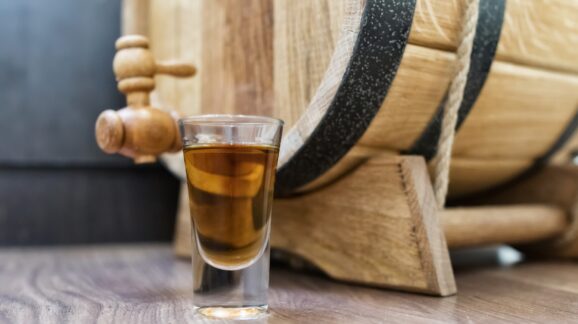DISTILLERS WANT TO DECRIMINALIZE MAKING BOOZE AT HOME
CEI’s Devin Watkins provided comments in the Texas Observer on a legal case to decriminalize home distilling:
In 2023, the Hobby Distiller’s Association renewed efforts to decriminalize home spirits distillation after Morris received a call from attorneys at the Competitive Enterprise Institute, a libertarian think tank that has long sought to chip away at the federal government’s regulatory powers. In December, the Institute filed a complaint on behalf of the Hobby Distiller’s Association; then in March, the group filed a motion for preliminary injunction to prevent the federal government’s enforcement of the home distilling ban.
In the federal lawsuit Hobby Distillers Association, et. al. v. Alcohol and Tobacco Tax and Trade Bureau, et. al., lawyers for the Competitive Enterprise Institute argue that the home distilling ban exceeds the government’s constitutional powers to regulate interstate commerce and collect taxes. Home distilling for personal consumption, the complaint states, is a local and noneconomic activity, and therefore not under federal government jurisdiction. And unlike the ban on homegrown cannabis that was upheld by the U.S. Supreme Court because it was deemed “necessary and proper” to enforce the federal law criminalizing the use, sale, or distribution of marijuana, the plaintiffs’ lawyers argue there is no comparable statute criminalizing spirits.
In addition, the plaintiffs assert that home distillation produces no revenue, and therefore, does not interfere with federal tax collection.
Devin Watkins, an attorney for the Competitive Enterprise Institute, told the Observer that home distillers would still have to abide by federal and state laws, obtain permits, and follow other regulations. “But if successful, they would be able to legally distill at home. … It would mean that the federal government would realize that this was not really a constitutional provision and would just stop enforcing it,” Watkins said.
In legal filings, government attorneys defend the home distilling ban as just “one part of a well-considered scheme adopted to protect the revenue generated by the excise tax on distilled spirits,” a long-standing tax, established since after the Civil War.
Those revenues are significant. According to an analysis of federal data, the U.S. government collected $11.1 billion, or 2.6 percent, of its total revenue from excise taxes on alcohol during the 2023 fiscal year. And because these taxes are based on alcohol content, more than half came from distilled spirits. Texas separately collected $1.8 billion from excise taxes on alcohol last fiscal year.
But home distillers say their struggle to practice their craft at home isn’t an attempt to evade taxes or sidestep the law. They are willing to pay excise taxes, if necessary, the lawsuit says. Nor do the members of the Hobby Distiller’s Association profess all the same goals as those of the Competitive Enterprise Institute.
Railing against federal overreach and calling for states’ rights, the institute echoed the calls of right-wing “Constitutional Originalists,” writing on their blog: “The plaintiffs’ request for a preliminary injunction reflects a broader struggle to defend personal freedoms and uphold the federalism at the center of our Constitution’s design.”
Since its founding in 1984, the institute has tried to dismantle laws regulating finance, labor, technology and telecommunications, transportation, food and drugs, and energy and the environment, even denying climate change science as “false” and “alarmist.”
Leonard Leo’s Federalist Society has also supported the Hobby Distillers Association’s cause as part of larger efforts to “target” the federal government’s power to regulate commerce and collect taxes: “If refining a spirit in your home to enjoy with family and friends can be banned outright as an exercise of the federal government’s interstate commerce or taxing power . . . what can’t be? Perhaps we’ll soon join hobby distillers around the nation in toasting another step toward restoring a federal government of limited and enumerated powers,” writes the Federalist Society on its website.
Eric Segall, constitutional law professor at the Georgia State University College of Law, told the Observer he disagrees with the larger goals of the Competitive Enterprise Institute. But Segall said he believes hobby distillers have a strong argument: Home distillation does not appear to be an “economic activity” the government can regulate under the Commerce Clause. “If it goes to the Supreme Court, it’s highly likely that the law will be struck down. … As currently constituted, the Supreme Court will not be sympathetic to this law.”
Read the full article on the Texas Observer.
